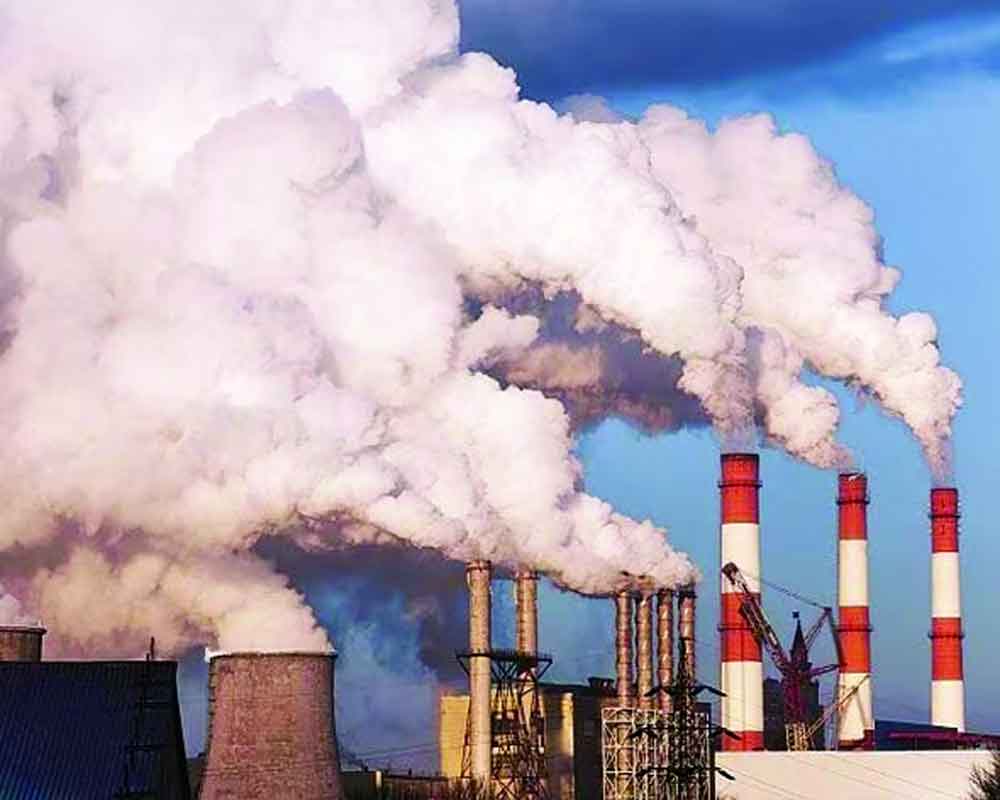Balancing global climate efforts requires nuanced policies, considering socio-economic differences for equitable and sustainable solutions
The global policing community's approach to climate change has been a significant challenge thus far. Hotspot events driven by the warming of the Earth's upper crust in both land and water, commonly known as 'Global Warming,' have given rise to extremism. The warming of water on Earth's surface, accounting for 91 per cent of climate heating, is a major contributor, followed by land at approximately 5 per cent, alongside ice loss and atmospheric warming.
The Paris Agreement, adopted in 2015 by the United Nations Framework Convention on Climate Change (UNFCCC), obliges all member states to adhere to Nationally Determined Contributions (NDCs) to reduce Greenhouse Gas (GHG) emissions, primarily carbon dioxide.
NDCs aim to solidify individual state contributions in combating global environmental challenges. Consequently, nations bear the responsibility to implement policies and regulations, working towards achieving net-zero emissions globally by 2050, aligning with the Paris Agreement's objectives.
The European Union's Carbon Border Adjustment Mechanism (CBAM), akin to the Emission Trading System (ETS), seeks to dissuade carbon-intensive economies from producing high-carbon products. To avoid 'carbon leakage,' high-value carbon products face significant taxes for their export. This mechanism aligns with the polluter pays principle and the precautionary principle, as articulated in Article 191(2) of the Treaty on the Functioning of the European Union (TFEU).
Developing nations, recognizing the impact of globalisation, anticipate a decline in demand for their products in the EU market due to reduced competitiveness. Countries like India and China, reliant on carbon-based manufacturing, generated $8.2 billion in export revenue in the EU market in 2022, as reported by the Global Trade Research Initiative. The steel industry, a cornerstone of India's development, faces significant challenges.
The global climate effort must consider the interests of the global south. While objections can be addressed in international bodies like the World Trade Organisation, fostering long-term bilateral relations necessitates domestic policies aligned with global socio-economic aspirations. A thorough socio-economic audit is essential to evaluate the proportionality and impact of imposing a heavy carbon tax burden on third-world countries.
The polluter pays and the precautionary principle are crucial in attributing responsibility, considering factors such as size, area, population, industrial activities, and mitigation efforts. However, applying bilateral disincentives uniformly across states with disparate economies undermines the equity principle, placing high-polluting nations on par with those contributing less. The stringent nature of CBAM poses challenges for countries like India unless they can negotiate more favourable terms.
In conclusion, addressing the complex challenge of climate change requires a nuanced and collaborative approach that considers the diverse socio-economic landscapes of nations. The burden of combating climate change should be shared proportionately, acknowledging the unique circumstances and contributions of each nation. A careful balance between environmental responsibility and economic development is crucial to ensure equitable and sustainable solutions.
Moreover, the international community must actively involve and accommodate the concerns of developing nations in policy-making processes.
In the pursuit of a greener future, a holistic and inclusive approach is paramount. As the world collectively addresses this urgent issue, finding common ground that aligns with both environmental and developmental aspirations is the key to building a sustainable and resilient future for all.
(The writer is a research scholar; views are personal)


























